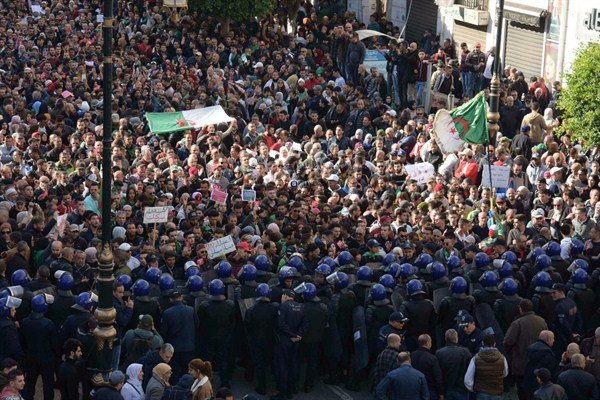For 10 months, weekly mass protests have rocked Algeria, as demonstrators have taken to the streets with sweeping demands that the country’s entire entrenched regime step aside. This standoff between protesters and Algeria’s generals is about to enter a new phase with Thursday’s presidential election.
Rather than a genuine chance to elect a new government, the vote, forced through by the generals over popular objections, is an attempt to rebuild the political structure that Algerians have been trying to bring down since their protest movement erupted in February: a military dictatorship with a civilian façade. The results of the election are unlikely to stick. Instead, they will probably lead to more protests and perhaps other forms of civil disobedience, raising the risks of the kind of repression that Algerians know all too well.
The five, heavily vetted candidates running for president have at times attempted to portray themselves as capable of realizing protesters’ demands, but it is clear that the regime will not allow any degree of real change. All of the candidates served in government under former President Abdelaziz Bouteflika, who was forced to resign in April. Two of them, Ali Benflis and Abdelmadjid Tebboune, are former prime ministers, while Azzedddine Mihoubi and Abdelkader Bengrine were Cabinet ministers. The fifth candidate, Abdelaziz Belaid, is a former ruling party insider.

